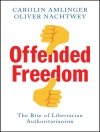This volume brings together Habermas’s key writings on language and communication. Including some classic texts as well as new material which is published here for the first time, this book is a detailed and up-to-date introduction to Habermas’s formal pragmatics, which is a vital aspect of his social theory.
Written from 1976 to 1996, the essays show the extent to which formal pragmatics underpins Habermas’s theory of communicative action. They are presented in chronological order, so that the reader can trace developments and revisions in Habermas’s thought. The volume includes a critical discussion of Searle’s theory of meaning, and Richard Rorty’s neopragmatism. It concludes with Habermas’s recent defence of his theory of communicative action, in which he reaffirms his view that interpretative understanding inescapably involves evaluation.
This book will be an indispensable text for students and academics who want a clear and accessible introduction to the development of Habermas’s theory of communication and its relation to his broader social and political theory.
Cuprins
Introduction: Maeve Cooke.
1. What is Universal Pragmatics? (1976).
2. Social Action, Purposive Activity, and Communication (1981).
3. Communicative Rationality and the Theories of Meaning and Action (1986).
4. Actions, Speech Acts, Linguistically Mediated Interactions, and the Lifeworld (1988).
5. Comments on John Searle’s ‘Meaning, Communication, and Representation’ (1988).
6. Toward a Critique of the Theory of Meaning (1988).
7. Some Further Clarifications of the Concept of Communicative Rationality (1996).
8. Richard Rorty’s Pragmatic Turn (1996).
9. On the Distinction between Poetic and Communicative Uses of Language (1985).
10. Questions and Counterquestions (1985).
Selected Bibliography and Further Reading.
Index.
Despre autor
Jurgen Habermas is Professor of Philosophy Emeritus at the University of Frankfurt.












